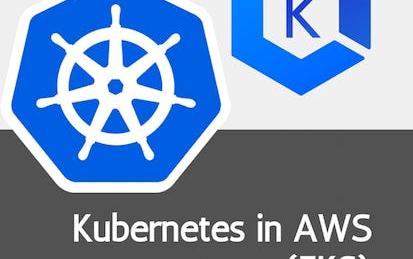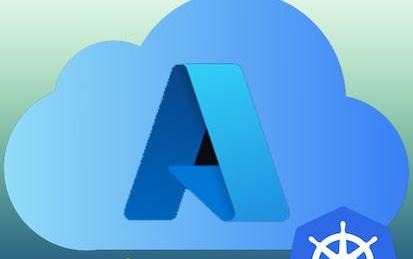

Our Courses

Managing Deployments Using Kubernetes Engine
This is a self-paced lab that takes place in the Google Cloud console. Dev Ops best practices make use of multiple deployments to manage application deployment scenarios. This lab provides practice in scaling and managing containers to accomplish common scenarios where multiple heterogeneous deployments are used.
-
Course by

-
 Self Paced
Self Paced
-
 1 hour
1 hour
-
 English
English

Introduction to OpenStack and Kubernetes Orchestrators
In this course, we will explain two open-source cloud management and orchestration platforms—OpenStack and Kubernetes. You will learn about different OpenStack concepts and the process to create virtual machines in OpenStack using the Web interface and the command line. You will also learn to automate these deployments using YAML-based Heat templates. OpenStack networking constructs, such as security groups and Floating IPs, will be covered in this course as well.
-
Course by

-
 Self Paced
Self Paced
-
 4 hours
4 hours
-
 English
English

Debugging Apps on Google Kubernetes Engine
This is a self-paced lab that takes place in the Google Cloud console. This lab teaches you how logging works on GKE and some best practices for log collection by going through some common logging use cases.
-
Course by

-
 Self Paced
Self Paced
-
 1 hour
1 hour
-
 English
English

Cloud Operations for GKE
This is a self-paced lab that takes place in the Google Cloud console. In this lab you will set up Monitoring and visualizing metrics from a Kubernetes Engine cluster
-
Course by

-
 Self Paced
Self Paced
-
 1 hour
1 hour
-
 English
English

Develop and Deploy Windows Applications on Google Cloud
Learn to deploy and run Microsoft Windows® applications on Google Cloud. Through lectures and hands-on labs, learn how to configure and run Microsoft Windows and Microsoft SQL Server in Compute Engine. You will also learn how to develop and deploy ASP.NET applications and deploy them to Compute Engine, App Engine, and Google Kubernetes Engine.
-
Course by

-
 Self Paced
Self Paced
-
 13 hours
13 hours
-
 English
English

Datadog: Getting started with the Helm Chart
This is a self-paced lab that takes place in the Google Cloud console. In this lab, you will learn how to use the Datadog Helm Chart. In this lab you will run the Datadog Agent in a Kubernetes cluster as a DaemonSet in order to start collecting your cluster and applications metrics, traces, and logs. You can deploy a Datadog Agent with a Helm chart or directly with a DaemonSet object YAML definition. In this lab you will be explaining and using those options in a real cluster, checking in real time the features they enable.
-
Course by

-
 Self Paced
Self Paced
-
 1 hour
1 hour
-
 English
English

Kubernetes in AWS: Create Cluster in EKS in your own VPC
Kubernetes in AWS: Create Cluster in EKS in your own VPC IMPORTANT: You must have or create an AWS account to work along to this course. By the end of this course, you will know the steps necessary to set up your own EKS clusters in AWS. You will configure the AWS CLI and connect your local kubectl to the cluster so you can perform direct operations to the cluster.
-
Course by

-
 Self Paced
Self Paced
-
 3 hours
3 hours
-
 English
English

Google Kubernetes Engine Pipeline using Cloud Build
This is a self-paced lab that takes place in the Google Cloud console. Create a CI/CD pipeline that automatically builds a container image, stores the image in Artifact Registry, updates a Kubernetes manifest in a Git repository, and deploys the application to Google Kubernetes Engine.
-
Course by

-
 Self Paced
Self Paced
-
 2 hours
2 hours
-
 English
English

Connect an App to a Cloud SQL for PostgreSQL Instance
This is a self-paced lab that takes place in the Google Cloud console. In this lab you will create a Kubernetes cluster and deploy a simple application to that cluster. Then, connect the application to the supplied Cloud SQL for PostgreSQL database instance and confirm that it is able to write to and read from it.
-
Course by

-
 Self Paced
Self Paced
-
 1 hour
1 hour
-
 English
English

AI Workflow: AI in Production
This is the sixth course in the IBM AI Enterprise Workflow Certification specialization. You are STRONGLY encouraged to complete these courses in order as they are not individual independent courses, but part of a workflow where each course builds on the previous ones. This course focuses on models in production at a hypothetical streaming media company. There is an introduction to IBM Watson Machine Learning. You will build your own API in a Docker container and learn how to manage containers with Kubernetes. The course also introduces&nb
-
Course by

-
 Self Paced
Self Paced
-
 17 hours
17 hours
-
 English
English

Getting Started with Splunk Cloud GDI on Google Cloud
This is a self-paced lab that takes place in the Google Cloud console. A step-by-step guide through the process to configure multiple methods to ingest Google Cloud data into Splunk. In this hands-on lab you'll learn how to configure Google Cloud to send logging and other infrastructure data to Splunk Cloud via Dataflow, the Splunk Add-on for Google Cloud Platform, and Splunk Connect for Kubernetes (SC4K).
-
Course by

-
 Self Paced
Self Paced
-
 2 hours
2 hours
-
 English
English

Deploy Kubernetes Load Balancer Service with Terraform
This is a self-paced lab that takes place in the Google Cloud console. In Terraform, a Provider is the logical abstraction of an upstream API. This lab will show you how to setup a Kubernetes cluster and deploy Load Balancer type Nginx service on it.
-
Course by

-
 Self Paced
Self Paced
-
 1 hour
1 hour
-
 English
English

Setting up a Private Kubernetes Cluster
This is a self-paced lab that takes place in the Google Cloud console. Hands-on lab for creating a private cluster in the cloud environment. In a private cluster, nodes do not have public IP addresses, so your workloads run in an environment that is isolated from the Internet. Prerequisites: Experience with Kubernetes Clusters, and CIDR-range IP address.
-
Course by

-
 Self Paced
Self Paced
-
 2 hours
2 hours
-
 English
English

Using OpenTSDB to Monitor Time-Series Data on Cloud Platform
This is a self-paced lab that takes place in the Google Cloud console. In this lab you will learn how to collect, record, and monitor time-series data on Google Cloud Platform (GCP) using OpenTSDB running on Google Kubernetes Engine and Google Cloud Bigtable.
-
Course by

-
 Self Paced
Self Paced
-
 1 hour
1 hour
-
 English
English

Using Prometheus for Monitoring on Google Cloud: Qwik Start
This is a self-paced lab that takes place in the Google Cloud console. In this lab, you'll set up a Google Kubernetes Engine cluster, then deploy the Managed Service for Prometheus to ingest metrics from a simple application.
-
Course by

-
 Self Paced
Self Paced
-
 1 hour
1 hour
-
 English
English

Deploying and Managing Windows Workloads on Google Cloud
This course teaches you about deploying and managing Microsoft Windows® workloads on Google Cloud. This course uses lectures and hands-on labs to show you how to plan and configure Microsoft Windows Server and Microsoft SQL Server in Google Cloud. You will configure identity solutions including Managed Service for Microsoft Active Directory, deploy Windows workloads to Compute Engine and Google Kubernetes Engine, and learn to manage and operate Windows workloads with Cloud Console, Cloud Logging, and Cloud Monitoring.
-
Course by

-
 Self Paced
Self Paced
-
 11 hours
11 hours
-
 English
English

Full Stack Software Developer Assessment
This is the final course in the IBM Full Stack Software Developer Professional Certificate. It will test your knowledge and the skills you’ve acquired so far. This course contains the graded final examination covering content from various courses in the PC.
-
Course by

-
 Self Paced
Self Paced
-
 4 hours
4 hours
-
 English
English

Container Creation and Orchestration Basics
Practice creating containers without installing anything! This course is designed for learners with no technical experience, providing a solid foundation for container creation and orchestration. Learners will gain hands-on practice on an Ubuntu system that can be easily transferred to other Unix-based operating systems. The modules in this course cover the benefits and uses of Kubernetes, the creation and building of container images, and the deployment of containers. To allow for a truly hands-on, self-paced learning experience, this course is video-free.
-
Course by

-
 Self Paced
Self Paced
-
 9 hours
9 hours
-
 English
English

Hello Node Kubernetes
This is a self-paced lab that takes place in the Google Cloud console. In this hands-on lab, you turn your code into a replicated application running on Kubernetes. You create a Node.js app, create a Docker container from it, deploy it to Kubernetes Engine, and scale it up. Watch a short preview Hello Node Kubernetes, GCP Essentials.
-
Course by

-
 Self Paced
Self Paced
-
 1 hour
1 hour
-
 English
English

Deploy a Web Application in Azure Kubernetes Service
In this one-hour project, you will learn how to use Microsoft Azure Cloud Platform and its Kubernetes Service to deploy a Web Application in a high availability environment, using the power of containers and Kubernetes in a real-world use case.
-
Course by

-
 Self Paced
Self Paced
-
 3 hours
3 hours
-
 English
English

Deploy Your Website on Cloud Run
This is a self-paced lab that takes place in the Google Cloud console. In this lab you will deploy a website to Google Kubernetes Engine, scale it out to more instances, then deploy a new version using rolling updates.
-
Course by

-
 Self Paced
Self Paced
-
 1 hour
1 hour
-
 English
English

Migrating a Monolithic Website to Microservices on Google Kubernetes Engine
This is a self-paced lab that takes place in the Google Cloud console. In this lab you will deploy a monolithic application to a Google Kubernetes Engine cluster, then break it down into microservices.
-
Course by

-
 Self Paced
Self Paced
-
 2 hours
2 hours
-
 English
English

DevOps Capstone Project
Showcase your DevOps and Software Engineering skills with this hands-on Capstone project! In this course you will apply the skills and techniques you have learned as part of the previous courses in the Professional Certificate. During the project you will develop, test, deploy, monitor, and enhance a secure microservices-based application on Cloud, over the course of several sprints. You’ll develop an Agile plan by developing user stories and a Kanban board using ZenHub and GitHub. This plan will be implemented to create a RESTful microservice-based Flask application.
-
Course by

-
 Self Paced
Self Paced
-
 14 hours
14 hours
-
 English
English

Foundations of Red Hat Cloud-native Development
Foundations of Red Hat Cloud-native Development (DO100a) is designed for IT professionals without previous cloud application deployment experience to learn basic Kubernetes skills. This course is a part of a three-course specialization. In this specialization, you will run, deploy, and test containerized applications with zero-downtime releases.
-
Course by

-
 Self Paced
Self Paced
-
 5 hours
5 hours
-
 English
English

Prisma Cloud: Securing GKE Run Time
This is a self-paced lab that takes place in the Google Cloud console. This is Part 1 in the Prisma Cloud Compute Lab Series. You will use Prisma Cloud Compute from Palo Alto Networks to secure runtime aspects of a Google Kubernetes Engine (GKE) cluster.
-
Course by

-
 Self Paced
Self Paced
-
 2 hours
2 hours
-
 English
English



